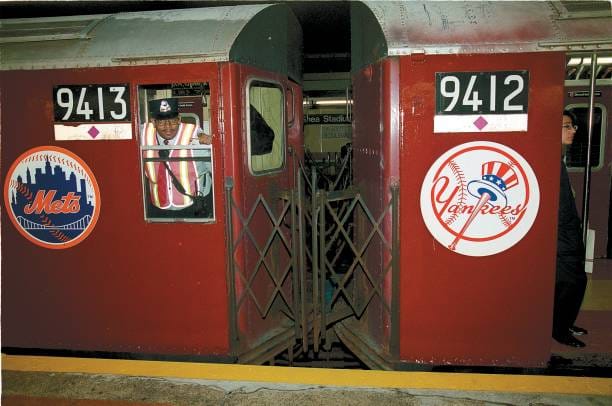Did This Yankees Broadcaster Just Drop the Worst Take on Pete Alonso’s Contract?
A deep dive into Michael Kay’s take on Pete Alonso’s new contract and why it might be one of the worst sports opinions in recent memory.

Michael Kay’s Mets Take Is Pure Yankee Cope
New York sports thrives on passion, debate, and the occasional hot take that makes you shake your head. But every so often, someone drops an opinion so off the mark that it needs to be called out. Enter Michael Kay, longtime Yankees broadcaster, who recently took aim at the Mets’ contract with Pete Alonso.
His argument? The Mets overpaid for their franchise first baseman in what he claims was a reactionary move to quiet fan outrage rather than a sound baseball decision. But a closer look reveals just how flawed Kay’s take really is.

Breaking Down Kay’s Argument
Kay contends that Alonso’s one-year, $30 million contract is excessive and suggests the Mets only made the deal to appease their fanbase. He also points to Alonso’s limited defensive impact and compares his salary to the highest-paid first baseman in history, Miguel Cabrera—a Hall of Famer in waiting.
But this comparison is misleading. Cabrera’s contract was an eight-year deal that extended well into his late 30s, saddling the Tigers with massive payroll obligations. Alonso’s deal, on the other hand, is short-term. A one-year contract will always carry a higher annual value than a long-term agreement. That’s just how baseball economics work.
The Mets Made the Right Move
Instead of risking a long-term overpay, the Mets gave themselves flexibility while keeping one of their best hitters in the lineup. Alonso’s contract structure also includes a mutual option for a second year, allowing both sides to reassess their positions after the season.
Kay fixates on the $30 million price tag, but in reality, it’s a low-risk move that allows the Mets to retain an elite power bat without being locked into a bad deal down the road. If Alonso plays well, the Mets still control the situation. If not, they move on. Simple.

The Yankee Hypocrisy
What makes Kay’s take even more puzzling is his selective criticism. He calls Alonso a “one-dimensional power hitter”, yet he had no problem when the Yankees committed nearly $30 million per year to Giancarlo Stanton—a player who has struggled to stay healthy and provide consistent production.
So why is it a bad move for the Mets to pay for power, but perfectly fine when the Yankees do it?
The Tax Argument: Who Cares?
Kay also bemoans the competitive balance tax penalties that come with the Mets’ payroll. But let’s be real—Steve Cohen doesn’t care. He’s made it clear he’s willing to spend to build a winner, unlike the Yankees, who have been hesitant to go all-in despite fan frustration.
Yankees fans have spent years begging ownership to be more aggressive, yet when Cohen does exactly that, Kay paints it as reckless spending. It’s an argument that simply doesn’t hold up.
Why Kay’s Argument Falls Apart
- Market Value Matters: One-year deals always come at a premium. Alonso’s salary follows this well-established trend.
- Financial Flexibility: The Mets avoid a long-term overpay while maintaining a productive lineup.
- First Base Market Dynamics: With Vladimir Guerrero Jr. hitting free agency next year, Alonso’s value could skyrocket if multiple teams miss out.
- Consensus Among Analysts: Most baseball insiders view the deal as a solid move—it’s only Yankee voices like Kay who are crying foul.
The Real Issue: Yankees Fans Can’t Handle the Mets’ Rise
This isn’t really about Pete Alonso’s contract. It’s about Yankee fans—and broadcasters like Kay—struggling to accept that the Mets are no longer a joke.
For years, the Yankees were the financial powerhouse in New York, but now the Mets are playing the same game—maybe even better. Cohen’s willingness to spend and build a competitive roster is something Yankees fans wish their own team would do.
Kay’s argument isn’t just biased—it’s lazy. He wants to criticize the Mets for spending while also wishing the Yankees would spend more. You can’t have it both ways.
The reality? The Alonso deal makes sense, and the Mets are no longer taking a backseat in their own city.
What do you think? Was the Alonso deal a smart move, or do you agree with Kay? Let’s debate.

